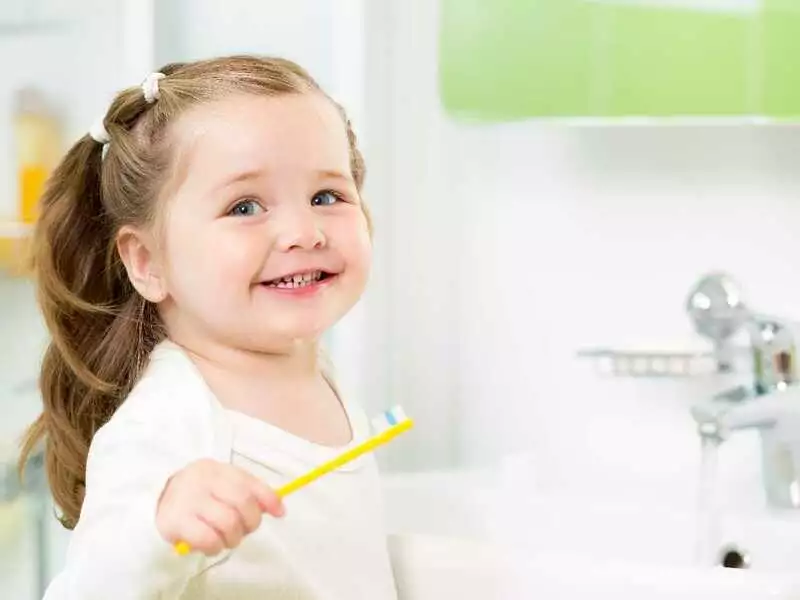Oral hygiene is an essential prevention of all dental problems. The role of the parent in the daily care of the child's teeth is very important, as it determines whether the child's teeth will be healthy and develop correctly. Even before the first teeth appear, it is a good idea to start oral hygiene routines to get the little one used to it. The diet of both the pregnant woman and the baby who is about to have his first teeth is also extremely important.
Maintaining the baby's teeth in good shape depends on many factors, such as the right diet, regular check-ups at the dentist's and, above all, good oral hygiene. Caries prevention starts as soon as the first teeth appear in the child's mouth - hygiene measures carried out at this time are of key importance in preventing the development of any abnormalities. In this case, it is the responsibility of the parents to ensure that their child's teeth are in good condition, and they should seek the help of a specialist mainly for the purpose of proper education - to have the knowledge to keep their child's teeth in good shape [1].
Healthy teeth and quality of life
Healthy teeth are not only a matter of good appearance, which is also an important aspect of our lives as it affects self-perception and self-esteem, but it is also important with regard to other areas of life, such as enjoying the meals we eat, forming social relationships appropriately and being confident in our private and professional lives. Oral diseases - i.e. diseases of the teeth as well as the gums - are a factor in raising the risk of developing other diseases such as diabetes, heart disease, pancreatic cancer or pneumonia [2].
When is it time for a first visit to the dentist?
The prevalence of dental caries has prompted greater care for a child's teeth, but as clinical practice indicates, the first visit to the dentist after the appearance of the first tooth is not standard, but rare. According to the recommendations, the child's first visit to the dentist should be 6 months after the appearance of the first tooth, but no later than 12 months of age. Why is it necessary to see the doctor so early? The main purpose of this type of visit is to establish the risk of the appearance of caries, to establish the cooperation of parents with the dentist, to outline the appropriate path to be followed by the child and to indicate the necessary hygienic procedures to be carried out so that the child's teeth develop smoothly and correctly. Parental awareness of diet, appropriate fluoridation treatments, the correct way to clean the oral cavity and the correct positioning of the child during hygiene procedures is crucial in the process of prevention and correct oral hygiene care [1]. Parents should not allow the first visit to the dentist to occur when a toothache occurs - as the child should have positive, pleasant associations associated with a visit to the dentist [3].
Knee-to-knee
The correct positioning of the child during all hygiene procedures is extremely important, particularly for the child's safety and for the parent to maintain full control over the child. Parents sitting opposite each other, with knees together, position the child to reduce the possibility of the child falling and to have free access to the toddler's mouth [1].
From the first months of life
From the first months of a baby's life is a good time to start taking care of the oral cavity. Cleaning the mucous membranes and gingival shafts are the first things a parent does to ensure adequate hygiene in this area in their child. This is not the only purpose of such measures - it is also important to get the child used to certain oral manipulations and to develop certain habits as they get older. Here, too, routine plays an important role, as it helps the child to become accustomed to certain routines - in fact it is recommended that the mucous membrane in the child's mouth be cleaned before going to bed every day, from early infancy onwards. Gauze or a cotton handkerchief, as well as accessories such as silicone pads or special brushes can be used to carry out all the necessary measures [1].
 Tooth brushing, photo: panthermedia
Tooth brushing, photo: panthermedia
When the baby's first teeth appear, one can think of expanding the baby's diet. The foods that are added to the baby's menu should be served with a spoon that only the baby can use [3].









